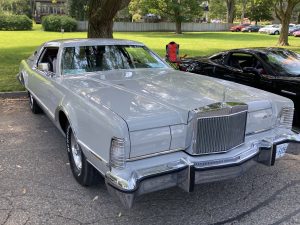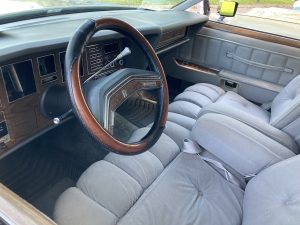Expect The Extraordinary: Signed, Sealed, Delivered! The Music of Motown with Artistic Director Beau Dixon and Host Marcus Nance – SEPTEMBER 18, 2023 at Festival Theatre, Stratford
I’m looking forward to attending this event – an annual Professional Arts Lodge (PAL Stratford) fundraising extravaganza – at the Festival Theatre in Stratford, Ontario.
You can access details here:
An excerpt reads:
Festival Theatre Lobby doors open at 6:00 PM for our always Silent Auction featuring Stratford Festival memorabilia, current season show posters signed by the cast members, jewelry, artwork, tickets to a Festival show next season, gift certificates from local restaurants, specialty stores and businesses, and much more! The Silent Auction Catalogue will be available here a few days prior to the show.
Curtain time for “Signed, Sealed, Delivered” is at 7:30 PM and the show runs until approximately 10:30 PM. Tickets (including HST) are $28, $45, $62 and $73 with a limited number of Globe Circle seats at $113.
I attended the annual PAL Stratford fundraising performance in 2022. I was absolutely astounded with the quality of the evening – totally spectacular and entertaining on every imaginable level. Something of a nature that you have to experience for yourself.
The narrative arc and conceptual structure of such an event can at times be even more appealing (for me) than a standard (and suitably spectacular) theatrical piece. A corollary here is that many things in life – wherever a person may turn – feature tremendously high level production values.
Connection to Detroit auto assembly lines
I’ve been listening to Motown music on my iPhone for some time. One of the details I’ve learned recently about Motown is that it has a connection to the Detroit auto assembly lines of many years ago.

Among cars coming off Detroit assembly lines in years gone by was the 1976 Lincoln Continental Mark IV such as one displayed at vintage auto show, Stratford, Sept. 3, 2023. Jaan Pill photo
An Oct. 20, 2020 Road and Track article, entitled “How Detroit Assembly Lines Changed Music Forever,” provides background about this connection.

1976 Lincoln Continental Mark IV. In my anecdotal recollection, in the 1960s and 1970s the Lincoln Continental was regarded as among the most impressive of luxury cars – even cooler, as I recall, than a Cadillac. Jaan Pill photo
The subhead for the article reads: “Before he became a legend, Motown founder Berry Gordy worked at a Lincoln-Mercury plant. He took those methods into the studio, and redefined pop music.”
An excerpt reads:
Unlike most record companies, Motown was almost completely self sufficient. It had its own in-house songwriters, backing musicians, recording studios, producers, and everything else you’d need to cut a record. “It was that self sufficiency, and that ownership of the means of the production, if you like, that I think was absolutely essential to its success, and fairly unusual,” says Adam White, who wrote Motown: The Sound of Young America with longtime Motown sales chief Barney Ales.
“My own dream for a hit factory was quickly taking form, a concept that had been shaped by principles I had learned on the Lincoln-Mercury assembly line,” Gordy wrote. “At the plant, the cars started out as just a frame, pulled along on conveyor belts until they emerged at the end of the line… I wanted the same concept for my company, only with artists and songs and records. I wanted a place where a kid off the street could walk in one door an unknown and come out another a recording artist—a star.”
Motown history
Click here for an Encyclopedia Britannica entry about Motown>
An excerpt reads:
Despite its great number of hits, Motown was actually a small company, but it was run with unmatched efficiency. Gordy prided himself on having learned about producing a quality product from a brief stint on the assembly line at an auto plant. He had rigorous quality control meetings, and only records that could pass the harsh criticism of his assembled brain trust were released. As a result of Gordy’s stringent measures, at the height of its popularity (in the mid- to late 1960s), Motown enjoyed the highest hit ratio for its released singles of any record company in history. In truth, Gordy had to employ these extraordinary means if a company as small as his was to survive against bigger companies in the popular music business.
Artist development at Motown was comprehensive. Equal parts finishing school and academy of popular arts, the company provided its acts with elaborate choreography under the tutelage of Cholly Atkins. Young women raised in public housing projects, like the Supremes, were schooled in the social graces, and chaperones accompanied the package-tour bus cavalcades that brought Motown to other parts of the United States during the company’s early years.
History and ongoing impact of the auto industry
A previous post highlights the history and ongoing impact of the auto industry – the good and the bad:
Stratford Festival: The decision not to build a railway line along the Avon River saved the day a century ago
Details about the impressive and inspiring land use planning history of Stratford are available at this article which I wrote some time back for the magazine of Architectural Conservancy Ontario:


Leave a Reply
Want to join the discussion?Feel free to contribute!